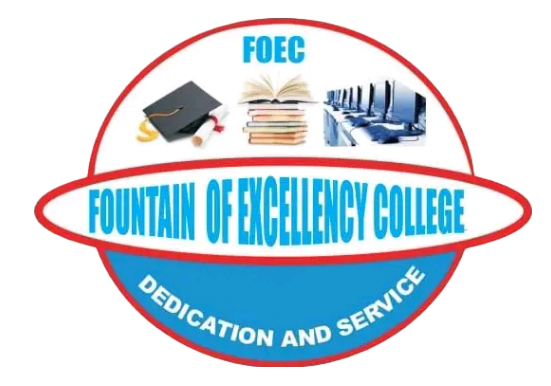Overview
Fountain of Excellency College offers a comprehensive program in Psychosocial Counseling designed to equip students with the skills and knowledge necessary to support individuals facing various mental health and social challenges. With a blend of theoretical coursework, practical training, and experiential learning, students gain a deep understanding of human behavior, psychological principles, and counseling techniques. The program emphasizes empathy, cultural competence, and ethical practice, preparing graduates to make a positive impact in diverse communities.
Program Objectives
- Develop Clinical Competence: Equip students with the theoretical knowledge and practical skills needed to assess, diagnose, and treat individuals experiencing psychosocial difficulties.
- Enhance Communication Skills: Cultivate effective communication skills to build rapport, facilitate therapeutic relationships, and empower clients to express themselves.
- Promote Cultural Competence: Foster an understanding of diverse cultural backgrounds and their impact on mental health, enabling students to provide culturally sensitive counseling services.
- Ethical Practice: Instill ethical principles and professional standards in counseling practice, ensuring students adhere to ethical guidelines and maintain client confidentiality.
- Advance Research Skills: Provide opportunities for students to engage in research projects, critical analysis, and evidence-based practice to continually improve counseling interventions.
- Facilitate Personal Growth: Encourage self-awareness, self-reflection, and personal growth among students to enhance their effectiveness as counselors and advocates for mental health.
Career Opportunities
Graduates of the Psychosocial Counseling program at Fountain of Excellency College are well-prepared for a variety of career paths in the mental health field, including but not limited to:
- Licensed Professional Counselor (LPC): Provide individual and group counseling services in private practice, community agencies, schools, or healthcare settings.
- Clinical Social Worker: Offer counseling, case management, and advocacy services to individuals, families, and communities in need.
- Substance Abuse Counselor: Assist individuals struggling with addiction through counseling, support groups, and treatment planning.
- School Counselor: Provide academic, career, and personal counseling services to students in educational settings, promoting their social and emotional well-being.
- Crisis Intervention Specialist: Respond to emergencies and provide immediate support to individuals experiencing acute mental health crises.
- Marriage and Family Therapist: Work with couples and families to address relationship issues, communication challenges, and other psychosocial concerns.
- Community Mental Health Advocate: Advocate for mental health awareness, education, and access to services within communities, organizations, and policy-making bodies.
Graduation Requirements
To successfully complete the Psychosocial Counseling program at Fountain of Excellency College, students must fulfill the following requirements:
- Academic Coursework: Complete a prescribed curriculum of core courses, including but not limited to Counseling Theories, Psychopathology, Counseling Techniques, Group Counseling, and Multicultural Counseling.
- Practicum Experience: Gain practical experience through supervised internships or practicum placements in counseling settings, accumulating a specified number of supervised hours working directly with clients.
- Professional Development: Engage in professional development activities, such as attending workshops, conferences, or seminars related to counseling practice, ethics, and cultural competence.
- Research Project: Conduct and present a research project on a relevant topic in the field of psychosocial counseling, demonstrating critical thinking, research skills, and an understanding of evidence-based practice.
- Ethical Standards: Adhere to ethical guidelines and professional standards set forth by counseling associations and licensing boards, demonstrating integrity, confidentiality, and respect for clients’ rights.
- Comprehensive Examination: Successfully pass a comprehensive examination covering the core content areas of the counseling program, demonstrating proficiency in counseling theories, techniques, and ethical practice.

